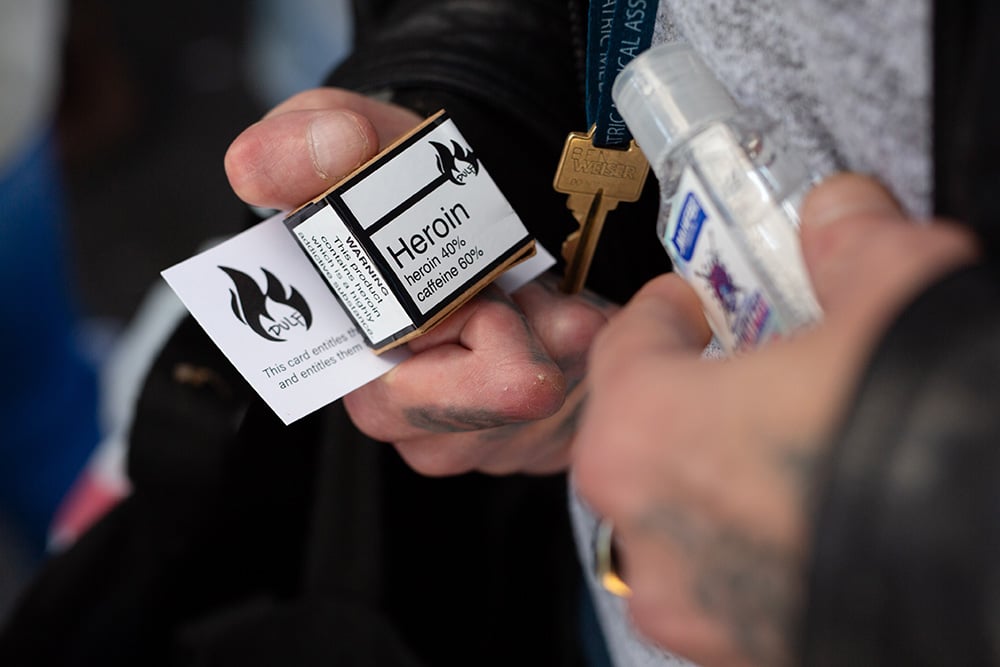Toxic drugs killed at least 171 people in British Columbia in September as drug users continued to advocate for a predictable, regulated supply of drugs.
Nearly six people died each day in the month, bringing the toll to 1,644 so far this year. It appears deaths in 2022 will be similar to the 2,267 lives lost in 2021, the most deadly year recorded.
That is an eight per cent increase from 159 deaths in September last year, and about the same as the 169 people who died the month before in August.
B.C. declared a public health emergency over the overdose crisis in April 2016 after toxic drug poisoning became the leading cause of unnatural death in the province.
Since then, more than 10,000 people have died, and the per capita death rate has more than doubled to 41.6 people per 100,000 residents.
Data released today by the BC Coroners Service shows the toll of an increasingly contaminated drug supply that makes it nearly impossible for anyone to know how much and what they are taking.
At least 81 per cent of samples contained fentanyl, an opioid up to 100 times as potent as heroin, which began to take hold in B.C.’s criminalized drug supply in 2015. Extreme fentanyl concentrations have contributed to 16 per cent of deaths in the last year, compared to 8 per cent pre-March 2020.
Fentanyl’s even more potent analogue, carfentanil, has contributed to 79 deaths this year, and 190 the year before.
More and more benzodiazepines, a class of sedatives that don’t respond to naloxone, are present in the drug supply, making poisonings more likely to be fatal and more difficult to reverse when combined with opioids. Since July, the benzo analogue etizolam has been found in 38 per cent of samples, and contributed to as many as 55 per cent of deaths in some months.
While the drug supply and resources vary across the province, the crisis continues to affect every community in B.C.
Vancouver, Victoria and Surrey accounted for 58 per cent of deaths so far in 2022, but Northern Health continues to see the most deaths per capita.
The proportion of people over 50 dying has risen to 38 per cent this year, and 79 per cent of people killed are male.
The Drug User Liberation Front announced today it would distribute 3.5 grams each of tested and untainted cocaine, methamphetamine and heroin to Vancouver Area Network of Drug Users members.
The grassroots organization has been running a compassion club safe supply project to separate people who use drugs from the increasingly contaminated illicit supply since 2020. In July, Health Canada denied its request for an exemption from federal drug laws to scale up the initiative.
The action today “commemorates the British Columbians who died of overdose in September 2022 and is the eleventh such distribution of drugs, and part of DULF’s Dope On Arrival Program,” read a news release.
“By giving away a regulated supply of drugs, the Drug User Liberation Front continues to demonstrate the life-saving potential of a community led response to the overdose crisis.”
In March, a death review panel convened by chief coroner Lisa Lapointe said the province hadn’t done enough to separate people from the supply and found a regulated supply of drugs would be the single most important intervention to stop deaths in the short-term.
B.C. is also preparing to decriminalize personal possession of up to 2.5 cumulative grams of illicit substances on Jan. 31.
Drug users say the threshold is too low for current use pattens, and it could incentivize further concentration and potency in the supply. DULF and a coalition of drug user rights groups have called on the plan to go further and remove the threshold altogether for “true decriminalization.”
Today’s report from the Coroners Service comes on the heels of a legislative committee report that also called for more urgent action to stop deaths but failed to propose the bold, supply-focused solutions the death review panel or drug users say are needed.
The current path will not save lives,” read an open letter in response to the legislative report. “The chief coroner will continue to announce tragic numbers of deaths by the poisoned supply.” ![]()
Read more: Health, Rights + Justice
















Tyee Commenting Guidelines
Comments that violate guidelines risk being deleted, and violations may result in a temporary or permanent user ban. Maintain the spirit of good conversation to stay in the discussion.
*Please note The Tyee is not a forum for spreading misinformation about COVID-19, denying its existence or minimizing its risk to public health.
Do:
Do not: